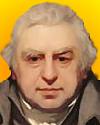
On 13 Feb 1742, Sir Joseph Banks was born, who during over 40 years as president of the Royal Society greatly promoted the advancement of science in his era. Despite this great legacy, he is not widely known today, because he did not himself leave a record of discoveries in science. However, he facilitated the careers of other better-known scientists who made notable discoveries.
While you might recollect that as a naturalist, he accompanied Capt. Cook on voyages, you perhaps know nothing of the great adventure or hardships, and seeing lives lost. Read this biography to learn about some of his remarkable experiences.

On 13 Feb 1910, William Shockley was born, co-developer of the transistor, for which he shared a Nobel Prize in Physics. Today's book pick is: Broken Genius: The Rise and Fall of William Shockley, Creator of the Electronic Age (Macmillan Science), by J. N. Shurkin, who lays out in this biography all the controversies, contradictions and idiosyncrasies for which William Shockley became known. Although with the transistor, he revolutionized electronics and changed the world for the better, he also pursued an incendiary campaigning about race, intelligence, and genetics. The author gives a clearly written of the history of technology, but what makes this biography gripping is the answer to the question, “Why did a man so brilliant and self-assured become a socially tone-deaf iconoclast and deliberately destroy himself?”
It is available from Amazon, typically about New from $25.43. Used from $1.99. (As of earlier time of writing - subject to change.)
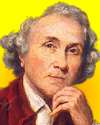 | Some physiologists will have it that the stomach is a mill; others, that it is a fermenting vat; others, again that it is a stew-pan; but in my view of the matter, it is neither a mill, a fermenting vat nor a stew-pan, but a stomach gentlemen, a stomach. |
 | I have from my childhood, in conformity with the precepts of a mother void of all imaginary fear, been in the constant habit of taking toads in my hand, and applying them to my nose and face as it may happen. My motive for doing this very frequently is to inculcate the opinion I have held, since I was told by my mother, that the toad is actually a harmless animal; and to whose manner of life man is certainly under some obligation as its food is chiefly those insects which devour his crops and annoy him in various ways. |
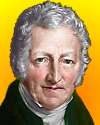 | Population, when unchecked, increases in a geometrical ratio. Subsistence increases only in an arithmetical ratio. A slight acquaintance with numbers will show the immensity of the first power in comparison of the second. |
| Before you look at today's web page, see if you can answer some of these questions about the events that happened on this day. Some of the names are very familiar. Others will likely stump you. Tickle your curiosity with these questions, then check your answers on today's web page. | |
| Births | |
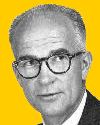 | William B. Shockley, born 13 Feb 1910 was an English-American engineer and teacher who shared (with John Bardeen and Walter H. Brattain) the Nobel Prize for Physics for their development of the transistor, a device that largely replaced the bulkier and less-efficient vacuum tube and ushered in the age of microminiature electronics. In which decade was the Nobel Prize awarded for the invention of the transistor? |
| Deaths | |
 | Alphonse Bertillon (1853-1914) was a French police chief of criminal identification, whose Bertillon system recorded physical characteristics (eye colour, scars, deformities, etc.) and specified measurements (height, fingertip reach, head length and width, ear, foot, arm and finger length, etc) This information recorded on cards. After two decades this system was replaced by fingerprinting in the early 1900s because Bertillon measurements were difficult to take with uniform exactness, and coul The Bertillion System cards were classified according to the length of which feature? |
| Events | |
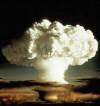 | On 13 Feb 1960, another country detonated their first plutonium bomb. It was mounted on a 330-foot tower. The same country continued by building up its nuclear capacity with nuclear-armed aircraft, missiles and submarines, in order to assert its independence. Which country detonated their first atom bomb on this day? |
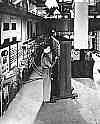 | On 13 Feb 1946, the world's first electronic digital computer was first demonstrated at the University of Pennsylvania, the work of John W. Mauchly and J. Presper Eckert. The machine occupied a room 30 by 50 feet. It was historic because it laid the foundations for the modern electronic computing industry by demonstrating that high-speed digital computing was possible using the vacuum tube technology then available. By what name was this computer known? |
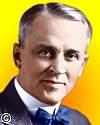 | On 13 Feb 1912, Robert Millikan began collecting data from his famous oil drop experiment. On this day he gathered observations on the first of the 58 drops he ultimately published giving the measurement of a certain fundamental physical constant. He earned the Nobel Prize for Physics in 1923 for his work. What physical constant did Millikan measure? |
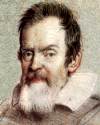 | On 13 Feb 1633, an Italian astronomer arrived in Rome for his trial before the Inquisition for professing the belief that the earth revolves around the sun. Who was this scientist? |
Fast answers for the previous newsletter for February 12: Charles Darwin • red blood cell • Copenhagen • astronomy • 62 miles • Alexander Fleming.
 If you enjoy this newsletter, the website, or wish to offer encouragement or ideas, please send feedback by using your mail reader Reply button.
If you enjoy this newsletter, the website, or wish to offer encouragement or ideas, please send feedback by using your mail reader Reply button. Your click on a Facebook, StumbleUpon, or other social button on the site webpages is also a welcome sign of appreciation. Thank you for using them.
© This newsletter is copyright 2020 by todayinsci.com. Please respect the Webmaster's wishes and do not put copies online of the Newsletter — or any Today in Science History webpage. (If you already have done so, please remove them. Thank you.) Offline use in education is encouraged such as a printout on a bulletin board, or projected for classroom viewing. Online, descriptive links to our pages are welcomed, as these will provide a reader with the most recent revisions, additions and/or corrections of a webpage. For any other copyright questions, please contact the Webmaster by using your mail reader Reply button.
--
If you do not want to receive any more newsletters, Unsubscribe
To update your preferences and to unsubscribe visit this link
Executive Real Estate Business Class
-
"It was like a man with wings. It wasn't like anything you'd see on TV or in a monster movie." ...
About the publisher
Search This Blog
Blog Archive
-
▼
2021
(585)
-
▼
February
(72)
- Mary Seacole | The Spitfire | George Washington
- On This Day for February 28 - Olof Palme assassina...
- On This Day for February 27 - Chile struck by eart...
- On This Day for February 26 - Napoleon's escape fr...
- On This Day for February 25 - Ousting of Marcos in...
- Demystified: How Do Penguins Tell Each Other Apart?
- On This Day for February 24 - U.S. President Andre...
- On This Day for February 23 - Alamo besieged by Sa...
- On This Day for February 22 - Cloning of Dolly, Ge...
- Your essential guide to the Tudors | LGBT+ history...
- On This Day for February 21 - Malcolm X assassinat...
- On This Day in History by OnThisDay.com: You are n...
- February 21: The 1st Romanov Tsar, the 1st Locomot...
- On This Day for February 20 - John Glenn's orbit o...
- On This Day for February 19 - Iwo Jima invaded by ...
- 🎉 Ready for 30% Off Kids' Memberships?
- On This Day for February 18 - Pluto discovered by ...
- Newsletter for Thursday 18 February.
- Demystified: Why Does Salt Melt Ice?
- On This Day for February 17 - Vietnam invaded by C...
- Newsletter for Wednesday 17 February.
- On This Day for February 16 - Power in Cuba seized...
- Newsletter for Tuesday 16 February.
- On This Day for February 15 - USS Maine destroyed,...
- Newsletter for Monday 15 February.
- February 15: The King of Persia, the Human Genome ...
- Who was Saint Valentine?
- On This Day for February 14 - Fatwa issued against...
- Newsletter for Sunday 14 February.
- February 14: Battle of Cape St Vincent, the Teleph...
- On This Day for February 13 - William and Mary cro...
- Newsletter for Saturday 13 February.
- February 13: Baghdad falls to the Mongols, the Bil...
- On This Day for February 12 - Chile's independence...
- Newsletter for Friday 12 February.
- February 12: The Qing Dynasty Ends, The Senate Acq...
- Demystified: Why Do We Say “A Pair of Pants”?
- On This Day for February 11 - St. Bernadette's fir...
- Newsletter for Thursday 11 February.
- February 11: Margaret Thatcher's Rise to Power, Ne...
- Watch ‘Tuskegee Airmen: Legacy of Courage’
- 🇺🇸💰Your Presidents' Day Exclusive Bonus!
- On This Day for February 10 - Kasparov-versus-comp...
- Newsletter for Wednesday 10 February.
- February 10: End of the French-Indian War, HMS Dre...
- All-New Tonight: 'The Food That Built America' Sne...
- On This Day for February 9 - Calcutta restored to ...
- Newsletter for Tuesday 9 February.
- February 9: Massachusetts Rebels, the Battle of Gu...
- On This Day for February 8 - Mary, Queen of Scots,...
- Newsletter for Monday 8 February.
- February 8: Mary Stuart is Decapitated, Napoleon L...
- What did Mary Tudor think of Anne Boleyn and her o...
- On This Day for February 7 - British Invasion laun...
- Newsletter for Sunday 7 February.
- February 7: The 1st English Prince of Wales, the M...
- Newsletter for Saturday 6 February.
- On This Day for February 6 - Accession of Elizabet...
- February 6: Maximilian I and Elizabeth II Ascend t...
- Black History Month: The Tuskegee Airmen Documenta...
- On This Day for February 5 - Punic Wars ended, Han...
- February 5: Congo Taken as a Personal Possession a...
- On This Day for February 4 - Yalta Conference open...
- February 4: The Chinese Song Dynasty, World's Olde...
- Serving Up an All-New Season
- On This Day for February 3 - Fifteenth Amendment t...
- February 3: The Naval Battle of Diu, Universal Suf...
- On This Day for February 2 - Ban on African Nation...
- February 2: New Amsterdam Grows Up, the US Pays Me...
- On This Day for February 1 - Space shuttle Columbi...
- Newsletter for Monday 1 February.
- February 1: Black History Month Starts and a Day o...
-
▼
February
(72)
-
Blogroll
-
About
HistoryFact










0 comments:
Post a Comment